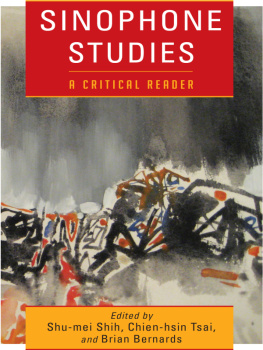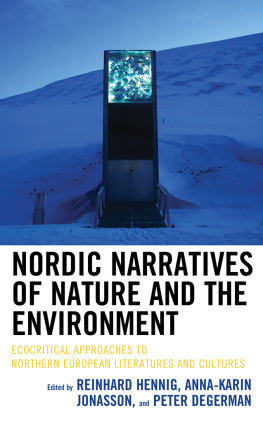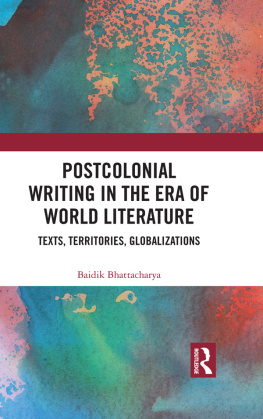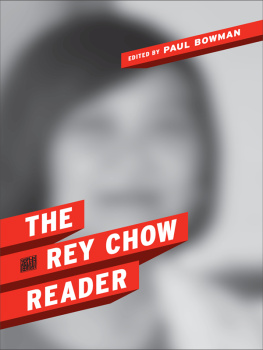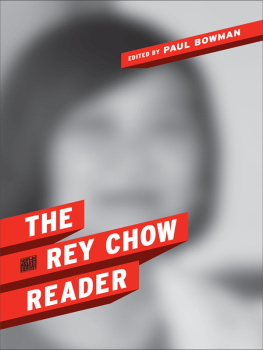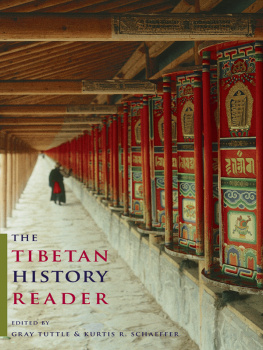SINOPHONE STUDIES
Global Chinese Culture
GLOBAL CHINESE CULTURE
David Der-wei Wang, Editor
Michael Berry, Speaking in Images:
Interviews with Contemporary Chinese Filmmakers
Sylvia Li-chun Lin, Representing Atrocity in Taiwan:
The 2/28 Incident and White Terror in Fiction and Film
Michael Berry, A History of Pain:
Literary and Cinematic Mappings of Violence in Modern China
Alexander C. Y. Huang, Chinese Shakespeares:
A Century of Cultural Exchange
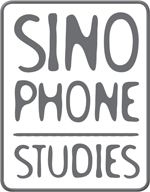
A Critical Reader EDITED BY
SHU-MEI SHIH,
CHIEN-HSIN TSAI,
AND BRIAN BERNARDS
Columbia University Press
New York

Columbia University Press wishes to express its appreciation for assistance given by the Chiang Ching-kuo Foundation for International Scholarly Exchange and Council for Cultural Affairs in the publication of this book.
Columbia university Press
Publishers Since 1893
New York Chichester, West Sussex
cup.columbia.edu
Copyright 2013 Columbia University Press
All rights reserved
E-ISBN 978-0-231-52710-1
Library of Congress Cataloging-in-Publication Data
Sinophone studies : a critical reader / edited by Shu-mei Shih, Chien-hsin Tsai, and Brian Bernards.
p. cm.(Global Chinese culture)
Includes bibliographical references and index.
ISBN 978-0-231-15750-6 (cloth : alk. paper)ISBN 978-0-231-15751-3 (pbk.)
ISBN 978-0-231-52710-1 (electronic)
1. Chinese diaspora. 2. ChineseForeign countriesEthnic identity. 3. ChineseForeign countriesIntellectual life. 4. National characteristics, Chinese. I. Shi, Shumei, 1961II. Tsai, Chien-hsin, 1975III. Bernards, Brian.
DS732.S57 2013
305.800951dc23
2012011978
A Columbia University Press E-book.
CUP would be pleased to hear about your reading experience with this e-book at .
COVER IMAGE: Untitled by Hung Chang (c. 1959). Oil on canvas. By permission of the estate of Hung Chang.
References to Internet Web sites (URLs) were accurate at the time of writing. Neither the author nor Columbia University Press is responsible for URLs that may have expired or changed since the manuscript was prepared.
Contents
Before the term Sinophone was coined with critical valence and historical specificity, many scholars, thinkers, and writers had expressed ideas and sentiments akin to what are now more critically and historically envisioned as Sinophone studies. The definitional and historical considerations of the Sinophone owe much to the insights of these scholars and writers from various parts of the world, some of whose works are anthologized here. The editors would like to thank all those who came before and helped us frame Sinophone studies, ranging from those who debated on South Seas color in colonial Malaya to those who critiqued Chineseness in different parts of the world (including China), and to also thank those scholars who have in recent years joined the adventure in the emergent field of Sinophone studies with great gusto and sophistication.
This volume would not have been possible without the support of the series editor, David Der-wei Wang; the executive editor, Jennifer Crewe at the Columbia University Press; and the supportive and constructive reviews by two anonymous readers.
Shu-mei Shih would like to personally thank fellow travelers of Sinophone studies in Malaysia (Fah Hing Chong and Choon Bee Lim), Taiwan (Kim Tong Tee, Hsinya Huang, and Chien-chung Chen), the United Kingdom (Margaret Hillenbrand), Italy (Claudia Pozzana), Hong Kong (Mirana May Szeto, P. K. Leung, Kam Louie, Sze Wei Ang, and K. C. Lo), and those in different parts of the United States (David Der-wei Wang, Rey Chow, Ping-hui Liao, David Eng, Shuang Shen, Eric Hayot, E. K. Tan, and Jing Tsu, among others). Over the years, she has presented her work on Sinophone studies in various institutions across the United States, Asia, and Europe, and she is grateful for all those who patiently listened to and responded to her presentations. Almost always the discussions and debates exceeded allotted times, and this expressed passion has sustained her work in this area through the years. Finally, she would like to acknowledge the important contribution of both of the coeditors (Chien-hsin Tsai and Brian Bernards), but her greatest gratitude is to Brian Bernards, who shouldered the heaviest task of putting together the manuscript in the final stages of work.
Chien-hsin Tsai first thanks his coeditors, Shu-mei and Brian, for their professionalism and enthusiasm that have seen the project through its different stages. Shu-meis critical vision and tireless devotion are instructive in bringing together constructive dialogues from varied fields and making this a most stimulating and rewarding collaboration. Brians acumen and conscientiousness are sources of valuable inspiration. Chien-hsin also wishes to thank Andrea Bachner, Yvonne Sung-sheng Chang, Lingchei Letty Chen, Eileen Cheng-yin Chow, Benjamin Frederick, Carlos Rojas, Jing Tsu, Michelle Yeh, and especially David Der-wei Wang for their unwavering support.
Brian Bernards wishes to thank the Department of East Asian Languages and Cultures at the University of Southern California, the UCLA Asia Institute, the University of California Pacific Rim Research Program, Fulbright-Hays, the National University of Singapores Asia Research Institute, and Professor Quah Sy Ren of Nanyang Technological University for providing critical logistical and/or financial support that benefitted this project. Brian would also like to acknowledge the support and assistance of his coeditors, Shu-mei and Chien-hsin, and all of his cocontributors, especially Tee Kim Tong, David Wang, and E. K. Tan, for their comments, feedback, and expertise.
The editors would also like to collectively acknowledge the following authors and publishers for granting permission to abridge and reprint their work:
Ien Ang, Can One Say No to Chineseness? first appeared in boundary 2 25, no. 3 (Autumn 1998): 223242. Abridged and reprinted with the permission of Duke University Press.
Rey Chow, On Chineseness as a Theoretical Problem first appeared in boundary 2 25, no. 3 (Autumn 1998): 124. Abridged and reprinted with the permission of Duke University Press.
Rey Chow, Things, Common/Places, Passages of the Port City: On Hong Kong and Hong Kong Author Leung Ping-kwan first appeared in differences 5, no. 3 (Fall 1993): 179204. Abridged and reprinted with the permission of Duke University Press.
Leo Ou-fan Lee, On the Margins of the Chinese Discourse first appeared in Daedalus 120, no. 2 (Spring 1991): 207226. Abridged and reprinted with the permission of MIT Press Journals.
Shu-mei Shih, Against Diaspora: The Sinophone as Places of Cultural Production is adapted and updated from Visuality and Identity: Sinophone Articulations Across the Pacific (Berkeley: University of California Press, 2007), 139. Revised and reprinted with the permission of the University of California Press.
Wei-ming Tu, Cultural China: The Periphery as Center first appeared in Daedalus 120, no. 2 (Spring 1991): 132. Abridged and reprinted with the permission of MIT Press Journals.
Gungwu Wang, Chineseness: The Dilemmas of Place and Practice first appeared in Cosmopolitan Capitalists: Hong Kong and the Chinese Diaspora at the End of the Twentieth Century, ed. Gary G. Hamilton (Seattle: University of Washington Press, 1999), 118134. Abridged and reprinted with the permission of the University of Washington Press.
Next page
